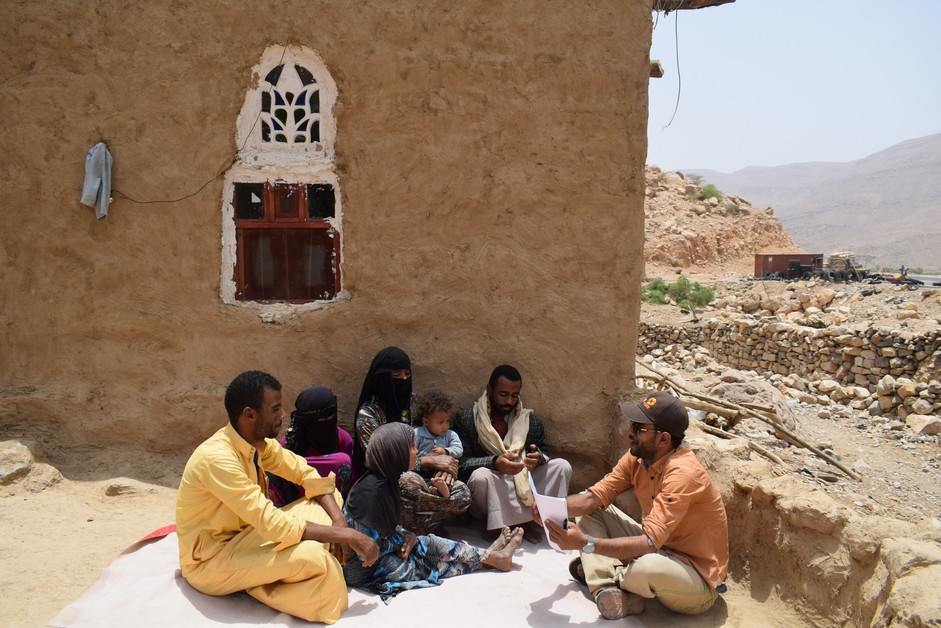Saleh is a forty-year-old man who lives with his family in Haran, Amran governorate of Yemen. Today he speaks about how the war has affected his life.
Recalling the Past
Before the conflict the Ministry of Agriculture used to grow hundreds of acres of fruits, vegetables and cereals. Over 600 employees used to benefit from this project. People used to either work with the government on the land or rent land from them and grow all kind of fruits and vegetables. Everyone was happily living and everyone had enough food for themselves and their families. For almost ten years I worked with my son on land which we rented from the government. We grew tomatoes, potatoes and different kind of fruits and vegetable. We earned a good amount of money on a monthly basis.
Three and a half years since the escalation of the conflict and Yemeni people continue to bear the brunt of ongoing devastation and severe economic decline. This war has left over 22 million people in need of humanitarian assistance, of which up to 12 million are at risk of famine. Amran is one of Yemen’s governorates that has been badly affected by the conflict and the economic decline.
Unpredictable future
Everything has changed. The war has destroyed everything. The Ministry of Agriculture ceased functioning, forcing 600 people to lose their incomes in the village. The massive increases in the prices of petrol and diesel has made it much much worse. My heart aches every time I look at how the green lands became dry.
Saleh is one of thousands, even millions of people in Yemen who lost their job due to the ongoing conflict. The agriculture and fishery sector, which employed more than 54% of the rural workforce and was the main source of income for 73% of the population prior to the escalation of conflict has been severely affected. Around 1.7 million rural households reliant in crop and livestock production require livelihoods assistance to help them survive.
Saleh says: “I used to own twenty-nine goats but I had to sell twenty goats in order to provide my family with food, so I am left with only nine, which I was worried I would also have to sell. Over the past three years I had to watch my children drop out of school because I can’t afford to pay.” Saleh’s family suffers from poverty and a lack of job opportunities to help him survive the brutality of war.
In spite of the pain and suffering, with help from humanitarian agencies like CARE, people like Saleh are better able to cope with the impossible situations they have found themselves in. As part of its humanitarian response, with funding from the European Union CARE works on a project to build capacity and respond to the food crisis in Yemen. The project started in May 2018, when 529 households received 52,000 Yemeni Rials (around $72) in thirteen villages in Amran.
“After being registered with CARE, many things have changed,” says Saleh. “With the money I receive monthly I am able to provide my family with essential household needs. And I was able to keep the nine goats. The rain season is approaching so I am going to try to work on the land again. Thanks to God and CARE for giving me hope.”


